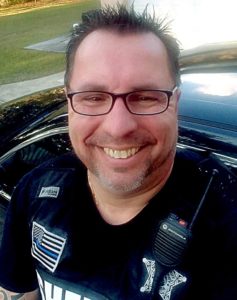Police suicide is the number one killer of law enforcement officers in the US. In 2019 alone, 228 officers took their own lives. Retired Sgt. Mark Dibona knows the situation all too well. He came close to taking his own life twice during his 33 year law enforcement career.
For Mark it really began when he volunteered to travel to New York following the 9/11 attacks in order to assist with recovery efforts. He says the smell of death and burning flesh was one he could never get out of his head. A short time after returning to Florida he responded to a crash with a vehicle fully engulfed and a person still inside. He carried a burden of guilt from that day, including reoccurring nightmares.

Mark DiBona
All too often the problem is aggravated by the common response “toughen up – it’s part of the job.” Officers may be reticent to seek help because of the stigma and fear of being blackballed by fellow officers. Mark shares the importance of recognition of the problem among agency leadership and policies that make officers feel more comfortable seeking help. Smaller agencies who may not have the funding to put police suicide prevention programs in place should explore resources available through the Supporting and Treating Officers in Crisis Act.
The fact that many officers are now patrolling alone may be aggravating the situation because it eliminates the natural peer support opportunity for officers to share and discuss their concerns with someone who understands.
Mark shares how he personally found strength to step away from the precipice and what the rest of us can do to help. He is available to make presentations at organizations or agencies anywhere in the country through the Bravo 748 Military and Combat Speakers Bureau.
Mark currently serves at the Public Information Officer for Blue H.E.L.P., an organization that seeks to reduce mental health stigma through education, advocacy for those suffering from PTSD and resources for healing.
TAKEAWAY: “It’s really okay to NOT be okay.”
Podcast: Play in new window | Download (Duration: 45:49 — 24.2MB)

